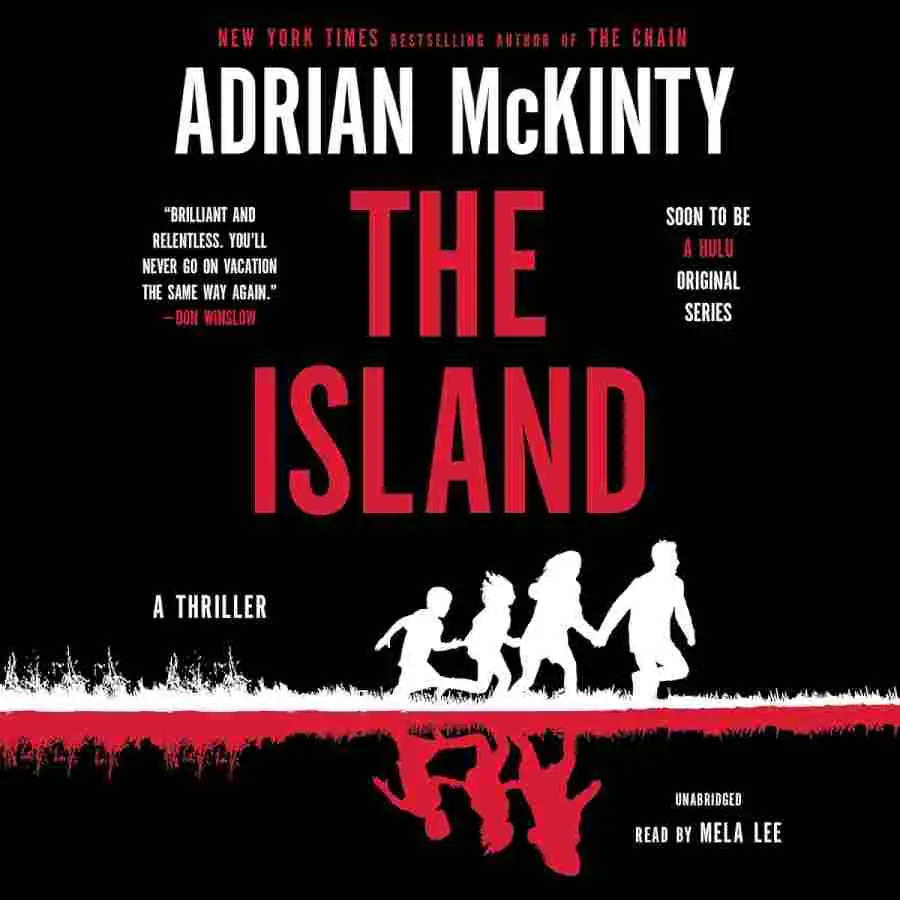

Ah, the excitement of discovering a new book that you just know will captivate you from the first page to the end! As an ardent reader who has consumed innumerable thrillers, mysteries, and psychological dramas, I was drawn to Adrian McKinty’s newest offering, The Island. It wasn’t the first book I’d reviewed, and it won’t be the last, but this one had something unique—an intensity, a sensation of dread that I hadn’t felt since reading The Chain or maybe even Stephen King’s Misery. Why does this book stand out in a genre dominated by thrilling, heart-stopping stories? Let us delve in and find out.
How I Discovered the Island
I discovered The Island in the same way I do with many of my reads: by perusing recommendations and looking for the next excellent audiobook to make my commutes less tedious. It’s one of those unplanned discoveries that turns out to be fortunate. You know, I like tales in which regular people are thrown into extraordinary circumstances. The more the isolation and intensity, the better. So when I heard the blurb for The Island, I knew I had to give it a listen. It promised a survival narrative with a twist, and it delivered!
Plot summary and analysis
The Island commences with what seems to be an ordinary family vacation. The Baxters, an American family that includes Tom, his new and younger wife Heather, and his two children from a previous marriage, Olivia and Owen, are traveling to Australia. This isn’t your typical tour with the Sydney Opera House and kangaroos. No, they choose to explore a secluded location—Dutch Island—which is off-limits to visitors. The idea to visit this location stems from a fortuitous meeting and a desire for an experience outside of Melbourne’s tourist attractions. But, as you can expect, this journey swiftly turns into a nightmare.
Tom, an orthopedic physician, is in Australia for a conference, but his family chooses to join him and experience the sights. The children are still hurting from their mother’s recent death and are not very fond of Heather, resulting in a tense family dynamic. This tension is heightened when an accident happens on Dutch Island, triggering a chain of events that transforms the Baxters’ vacation into a horrific battle for survival.
As the novel continues, the Baxters get involved with the O’Neills, a close-knit, fiercely independent clan that rule Dutch Island. The family mistakenly kills a local lady in a hit-and-run event, and instead of reporting it right away, they make the fatal error of attempting to cover it up. Unfortunately, the O’Neills discover out, and the Baxters must face their terrible, antiquated form of punishment.
Heather, who was first misjudged by everyone, including the kids, serves as the story’s cornerstone. She emerges as an unexpected hero, relying on talents learned while growing up on a remote island with her military parents to keep herself and the children alive. Her transformation from an apparently shy young lady to a strong defender is one of the book’s most gripping themes. The O’Neills’ pursuit is unrelenting, and the suspense McKinty creates as Heather and the kids escape arrest is nearly intolerable at moments.
The action never stops, and the stakes are constantly escalated, with the brutal Australian outback being as much of a villain as the O’Neill clan. The savagery of the pursuit, mixed with the psychological strain on the protagonists, makes for a riveting read from beginning to end.
Character analysis
The people and their evolution throughout the novel are what makes The Island so interesting. Heather begins as a rather minor presence in the Baxter household, a stepmother looking for her position. However, as the tale progresses, we witness her blossom into the central character. Her upbringing on an isolated island by military parents offers her an advantage that no one, including herself, expected her to have. McKinty’s tale is on her journey from an underappreciated stepmother to a cunning survivor.
Tom, on the other hand, starts out as the confident, dominating patriarch, but he progressively unravels as the situation slides out of his hands. His first effort to resolve the matter via discussion and money—a $500,000 offer to the O’Neills—is devastating. His character journey is one of losing authority and influence, which contrasts sharply with Heather’s development.
Olivia and Owen, the children, also play important roles in the story. Initially, they are presented as angry and tough, still mourning their mother’s loss and unfriendly to Heather. However, when they confront life-or-death crises together, their bond with Heather grows. They come to perceive her as more than simply a stepmother; she is also their defender. This transition is gradual and seems natural, bringing emotional depth to an already action-packed story.
The O’Neills, notably Ma O’Neill, are portrayed as nearly mythological villains, anchored in the country and traditional customs yet maintaining their own cruel sense of justice. The matriarch, Ma O’Neill, is a powerful opponent who personifies the harsh, merciless character of Dutch Island. Her children, notably Danny—the bereaved husband of the lady the Baxters accidently killed—serve as the story’s villains. They are persistent in their quest, motivated by sorrow, hatred, and a perverted sense of honor.
Themes and comparisons
The Island delves into various subjects, including survival, family relationships, and the conflict between modernization and traditional law. The survival theme is prominent, with the harsh Australian outback acting as both a physical and symbolic barrier for the protagonists. McKinty masterfully exploits the setting to heighten the suspense, with the island becoming practically a character in its own right.
Another major subject is family, namely Heather’s changing connection with her stepchildren. The story explores the difficulties of blended families, the battle for acceptance, and the friendships formed under difficult circumstances.
One can’t help but compare The Island to McKinty’s earlier book, The Chain, which likewise dealt with regular individuals thrust into exceptional, high-stakes circumstances. While The Chain focuses on the psychological dread of being compelled to commit a crime to rescue a loved one, The Island is more about physical survival and the extent people would go to preserve their families.
The novel also draws parallels with films such as Deliverance and The Road Warrior, in which individuals are tested to their utmost in harsh, unknown settings. The O’Neills, with their primordial, almost savage manner of existence, resemble the terrible, lawless villains from earlier flicks. McKinty’s use of cultural and historical allusions, such as Aboriginal mythology and Australian convict history, lends richness to the tale by creating a unique feeling of location and time.
Spoiler and Key Moments
Now, let’s get into the details—the critical events that make The Island such a gripping book. The most important spoiler is, of course, the incident that puts everything in motion. Tom strikes a local lady named Ellen with their vehicle, and instead of doing the right thing, the family tries to cover it up. This choice leads to their abduction by the O’Neills, who seem to be receptive to talks but are ultimately motivated by revenge.
The discussions are shattered when Danny, Ellen’s husband, arrives and stabs Tom, intensifying the dispute beyond any reasonable conclusion. The narrative then becomes a never-ending cat-and-mouse game, with Heather and the children running into the bush while the O’Neills pursue them. One of the most terrifying moments includes Heather utilizing her survival abilities to avoid arrest, which culminates in a deadly fight that kills many of the O’Neills.
The novel’s finale is explosive, with Heather unleashing her inner rage and the survival instincts taught in her by her childhood. Heather and the children successfully escape the island at the conclusion of the novel, but their experiences have left an indelible mark on them.
Final thoughts
Adrian McKinty’s The Island is a masterpiece in suspense and tension. It’s a survival narrative, but it’s also about the ties that develop under terrible circumstances and the extent individuals will go to protect those they care about. The story is unrelenting, and McKinty’s pace is impeccable—never allowing the reader to breathe.
While The Island is a solo book, it has the potential to be as influential as McKinty’s The Chain. It’s a thrilling trip from beginning to end, with well-developed characters and an environment that’s as terrible as the people who live there. If you like thrillers that keep you on the edge of your seat, this one is not to be missed.
So, do I suggest The Island? Absolutely. However, if you’re planning a distant island trip soon, you may want to avoid reading it.


